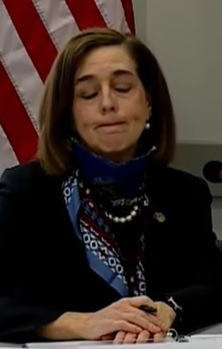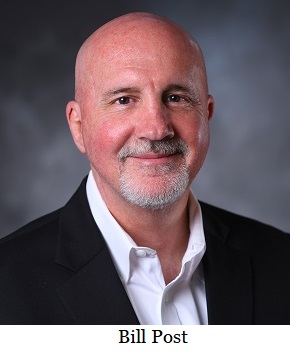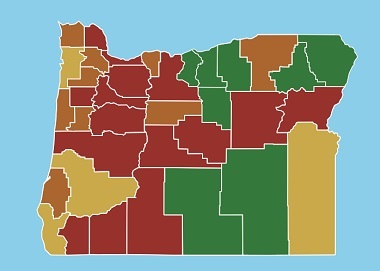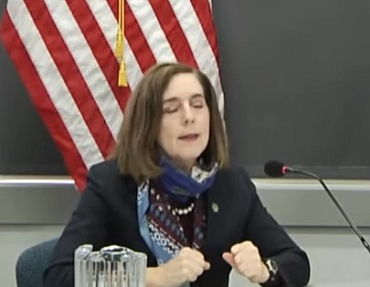 Post an Event
Post an Event
| Benton County Republicans’ Private Fundraising Event, “Bent-on Boots and Bling” with Trey Taylor |
| Friday, September 5, 2025 at 5:00 pm |
| Featuring Trey Taylor
Music Private Event
Friday, September 5, 2025 5:00-5:30 pm VIP Reception
5:30-8:00 pm Heavy Appetizers,
Auction, Concert
Red: $750 VIP Reception
Front Row Table Sponsor
White: $500 Table Sponsor
Blue: $50 per person
Limited Seating. Get Yours Now!!!
Support Local
Dress up: Bling, Cowboy, Patriotic Benton County Republican
FUNDRAISER
www.BentonGOP.org
Get your tickets today at:
https://www.bentongop.org/event-details/benton-county-republicans-fundraiser/form
About Trey:
Trey is the youngest African American Man in Country Music History. The Denver Post wrote
"It's impossible to miss his enthusiasm. With a fondness for cowboy boots, gaudy colors and dazzling jewelry, Trey Taylor could stand toe to toe with any of the Pop, Country or even Rap
contemporaries of his generation.“ |
| Trysting Tree Golf Club, 34028 NE Electric Rd., Corvallis |
Teases re-opening in June
Governor Kate Brown has again extended her declaration of a state of emergency for COVID-19 for 60 days, until June 28, 2021, unless earlier rescinded or extended.
The declaration is the legal underpinning for the Governor’s COVID-19 executive orders and the Oregon Health Authority’s health and safety guidance.. Extending the state of emergency also helps ensure Oregon is able to fully utilize available federal COVID-19 relief and assistance.
The Governor issued the following statement:
“We are in the middle of the fourth surge of COVID-19 in Oregon, driven by more contagious variants of the disease. We must stop hospitalizations from spiking, so we can save lives, help our nurses and doctors weather this surge, and ensure no Oregonian is denied vital health care. Tomorrow, 15 counties are moving to the Extreme Risk Level, with nine more in High Risk. Hospitalizations nearly doubled in the last two weeks, to well over 300.
“At this time last year, there was so much we did not know about how to stop the spread of this deadly disease. Now, more than a year into the COVID-19 pandemic, we just have to hold on for a few weeks longer."
“I intend to fully reopen our economy by the end of June, and the day is approaching when my emergency orders can eventually be lifted. How quickly we get there is up to each and every one of us doing our part. Over 1.7 million Oregonians have received at least one dose of vaccine, and over 1.2 million are fully vaccinated against this deadly disease.
"Vaccinations are the best way to protect yourself, your friends, and your loved ones. They are also the quickest path toward lifting restrictions.
“Today, I am lifting Oregon’s executive order for price gouging related to the pandemic, because the days of hand sanitizer and, yes, toilet paper scarcity are far behind us. In the weeks to come, as the number of fully vaccinated Oregonians continues to grow, we will be able to lift the emergency orders and state regulations that have kept us safe for the past year.â€
--Bruce Armstrong| Post Date: 2021-04-29 10:18:42 | Last Update: 2021-04-29 10:39:19 |
State lockdowns are not working
Oregon State legislator Representative Vikki Breese-Iverson (R-Prineville) has issued a statement publicly advocating for ending the excessive and restrictive government mandated lock-downs that have plagued Oregon now for more than a year.
The statement reads as follows:
The data is becoming clearer regarding the effectiveness of lockdowns and other government-imposed responses to the COVID-19 pandemic. Lockdowns are not helping reduce case counts or hospitalizations. Governor Brown’s actions are contributing to the host of negative consequences that result from lockdowns of our society, including, poor and declining mental health; suicide ideation (up 25% in 18-24-year olds); economic ruin for families and small businesses; kids being significantly set back in their education; and many students missing a pivotal part of growing up by not being able to participate in sports and other extracurricular activities.
My office received an email this week from a constituent who explained her son would not be able to compete in his high school track meet, nor take his senior class picture, because he was supposedly ‘exposed’ to COVID though he repeatedly denied being in contact with the original case. In other situations, busloads of kids are being quarantined because they have merely been on the same bus as a positive case, regardless of contact. In more dire circumstances, children have been deprived of the social interaction they need, hot meals, and the teachers and other adults who act as mentors.
My constituents have been drained physically, financially, and morally as a result of the lockdowns. Some have sold everything to make it by because they lost their jobs. Others are just now receiving their Pandemic Unemployment Assistance benefits after more than a year of waiting. This is heartbreaking and unacceptable.
The Oregon Health Authority and Governor Brown say we need to reinstitute lockdowns to prevent hospitals from becoming overwhelmed. That might make sense - if there were evidence that lockdowns worked. The truth is, I am hard-pressed to find a correlation between state management and success in slowing or flattening case rates – and so are researchers. We can see evidence of this failure both here and in other states.
In January, Newsweek reported a peer-reviewed study published in the European Journal of Clinical Investigation which analyzed coronavirus case growth in 10 countries in early 2020. “The researchers used a mathematical model to compare countries that did and did not enact more restrictive lockdown orders, and determined that there was ‘no clear, significant beneficial effect of [more restrictive measures] on case growth in any country’.â€
Dr. Tom Woods, a senior fellow at the Mises Institute, added to this point when he compared Los Angeles to Sweden:
“The graph that follows may seem a trifle unfair – aren’t Sweden and Los Angeles quite different from each other? Well, sure. But if we were truly facing a catastrophic problem that could be mitigated only by lockdowns, social distancing, and masks, shouldn’t there still be a major difference between relatively laissez-faire Sweden and heavily locked-down Los Angeles? Shouldn’t the difference in results between two places with such different policies absolutely overwhelm whatever other differences exist between them, such that the superiority of the Los Angeles approach should come through clearly in the chart? And yet...â€
In Oregon, we are seeing a spike in cases, but not in deaths. Texas is mask-free and 100% open while steadily declining in both new cases and deaths. Other states - Mississippi, Georgia, and Arizona - are loosening their restrictions and declining, or static, in cases as vaccine rollout nears the halfway point.
These points lead us to three conclusions:
- Lockdowns are ineffective at managing case rates.
- People will take voluntary measures to ensure their health and the health of their loved ones.
- Vaccines are effective in reducing deaths among our vulnerable populations.
We are nearing the 50% vaccination mark across the state. Most of our vulnerable populations, if they chose to, have received their shots. It is time to open Oregon. People will make decisions for their safety and the safety of their loved ones. It is not our job to do it for them. The vulnerable are vaccinated. People are ready to get back to living after a year of distress and hardship. It is time to stop the arbitrary-number-guidelines, OSHA at-will fines and permanent rulemaking for a temporary issue. My constituents, and I, have had enough.
Sincerely,
Vikki Breese-Iverson
State Representative
House District 55
--Staff Reports| Post Date: 2021-04-28 20:36:14 | Last Update: 2021-04-28 21:37:14 |
Will lower prices for Oregonians
A bill from Representative Bill Post (R-Keizer) to allow the sale of
pseudoephedrine products without a prescription has now been approved by Oregon House legislators
today. That bill is
HB 2648.
This is the third time that Rep. Post has attempted to remove an unnecessary barrier for
Oregonians to lower their health care costs when purchasing pseudoephedrine products.
Products such as Sudafed will still be restricted to people who are at least 18 years of age
with a valid ID under the proposal.
Rep. Post was joined by a bipartisan group of lawmakers who sponsored the proposal.
The impact on health care consumers’ wallets could be significant. Currently,
purchasing a pseudoephedrine product requires a visit to your doctor to receive a
prescription, which comes with an expensive bill.
“With health care costs skyrocketing, this simple bill to reduce the cost of a common
cold medicine should be a no-brainer,†said Rep. Post. “We shouldn’t be asking people
to jump through very expensive hoops by visiting a doctor to obtain a prescription to
common cold medicine, especially when Oregon is the ONLY state requiring a
prescription.â€
--Bruce Armstrong| Post Date: 2021-04-28 13:00:30 | Last Update: 2021-04-28 13:21:50 |
AOC and ORLA pen letter to the governor
County Commissioners from 27 of the 36 counties across Oregon have jointly signed a letter along with the Association of Oregon Counties (AOC) and the Oregon Restaurant and Lodging Association (ORLA) demanding that Governor Brown remove restrictions that are killing Oregon restaurant and hospitality businesses.
The letter reads as follows:
This message is a unique one as it represents the first time county governments have formally written to your
office in partnership with Oregon's hospitality industry. We write to you to ask for reconsideration of our
approach to virus mitigation measures at this stage in the crisis.
The virus continues to take a grave toll on our local economies with restaurants representing one of the key
cornerstones fueling connectivity, hope, and mental health for our residents. These are the places we break
bread, share inspiration, and encourage one another and the COVID crisis has stripped us of these life
essentials.
The environment in each county throughout Oregon is uniquely its own. And the experts of these regions live
and breathe their successes and failures. The job of a Governor in a crisis like this is an unenviable one. We
fully accept and understand the importance of hospital capacity including an assessment of available personnel
in order to adequately meet the demands of any health emergency.
We have reached the point where the vast majority of Oregon's population most prone to serious illness has
been successfully protected from the virus. And we must all admit a documented case today does not carry with
it the same weight as a documented case in the Fall when so many of our fellow Oregonians lacked access to
vaccine. The variants are indeed troublesome, and we share your concern for their spread. But shutting down
our restaurants and further depriving Oregonians of their right to make calculated community engagement risks
when the virus continues to spread elsewhere will not result in success.
The time has come to allow our communities the opportunity to move forward while embracing continued health
and safety precautions. Our people understand the risks associated with COVID and our businesses have
proven their ability to adhere to the highest expectations in safety, sanitation, and air quality. It is no coincidence
Oregon has not seen one instance of a super spreader event tied to our hospitality industry.
We ask for your support in putting all effort and momentum into vaccinations. We have the safety guidelines and
expectations clearly outlined for all industry sectors and have reached a point where those safety measures,
alongside our work to achieve vaccination goals, can carry us through the other side of this pandemic without
breaking our statewide hospital capacity.
You must know restrictions on specific types of businesses compared to others within our local communities is
creating rifts and dividing people rather than bringing Oregonians together. We can flip the script by removing
state mandated business restrictions on our communities while empowering our county health departments to
uphold high expectations for ongoing health and safety measures as recommended by the CDC.
We have reached our turning point and we thank you in advance for your consideration.
--Staff Reports| Post Date: 2021-04-27 19:38:59 | Last Update: 2021-04-27 22:12:41 |
Oregonians growing weary of excessive mandates
Oregon's Governor Kate Brown has again announced updates to county risk levels under the state’s public health framework.
With total hospitalizations above 300 people statewide, 15 counties will move to the Extreme Risk level effective Friday, April 30 through Thursday, May 6. In addition, nine counties will be in the High Risk level, four at Moderate Risk, and eight at Lower Risk.
Governor Kate Brown pleaded with Oregonian's who may be growing tired of the same rhetoric repeated so many times by the controversial governor, and gave the following statement:
“If we don’t act now, doctors, nurses, hospitals, and other health care providers in Oregon will be stretched to their limits treating cases of COVID-19,†said Governor Brown. “Today’s announcement will save lives and help stop COVID-19 hospitalizations from spiking. It will take all of us working together to bring this back under control.â€
The following 15 counties have now been designated as Extreme Risk counties:
- Baker
- Clackamas
- Columbia
- Crook
- Deschutes
- Grant
- Jackson
- Josephine
- Klamath
- Lane
- Linn
- Marion
- Multnomah
- Polk
- Wasco
Malheur County has now been moved from lower risk to Moderate Risk, and Hood River and Umatilla Counties were moved from Moderate Risk to High Risk by Governor Kate Brown. Benton, Clatsop, Coos, Jefferson, Lincoln, Washington, and Yamhill Counties will unfortunately remain in High Risk of Covid category.
“Our businesses allow people to gather in places with standardized safety measures. We
shouldn’t shut them down", said House Republican Leader Christine Drazan (R-Canby.) They are doing everything they can to reduce the spread of COVID-19 under existing rules."
--Bruce Armstrong| Post Date: 2021-04-27 18:11:30 | Last Update: 2021-04-27 19:38:59 |
New bill would give Oregon landmark a designated day
A new bill has passed the Oregon House which would designate May
22 as Crater Lake National Park Day to recognize a famous Oregon landmark and the
deepest lake in the United States.
Chief sponsors Representative Vikki Breese-Iverson (R-Prineville) and Representative
E. Werner Reschke (R-Klamath Falls) proposed
HB 3162 to celebrate this natural
resource and state treasure.
At 1,943 feet deep, Crater Lake is the deepest lake in the United States. It is also the
clearest lake on the planet with clarity down to 143’. It boasts some of the purest water
on the planet which is comprised entirely of snow and rainfall.
“Oregon’s natural environment is one of the greatest things about our state,†said Rep.
Breese-Iverson. “It’s important to recognize our unique environments to not only
celebrate our state’s natural beauty, but also the benefits they bring us through scenic
tourism and getting more people outside to enjoy nature.â€
“Crater Lake is Oregon’s only National Park, renowned for its deep blue water and the
amazing 360-degree bowl that surrounds this majestic lake,†added Rep. Reschke.
“Crater Lake National Park is truly a national treasure located here in Oregon, and we
are fortunate to be able to enjoy it with a short day-trip. Crater Lake National Park Day
recognizes this park as a defining landmark of Oregon.â€
--Bruce Armstrong| Post Date: 2021-04-27 17:45:31 | Last Update: 2021-04-27 17:56:35 |
Mask mandates start to raise concerns
Earlier this year, New York Governor Andrew Cuomo was facing investigation over returning COVID-19 patients to nursing homes, leading to a high number of deaths. This should have sounded an alarm to all governors that they are accountable for consequences of their orders. For some reason this awareness may have bypassed Oregon's Governor Kate Brown.
Nearly a year ago, Governor Brown announced that face coverings were required statewide. Every news release since from the Governor or the Oregon Health Authority has repeatedly stated they are determining strict policy based on supposedly "the best science". Just like their “science,†Dr. Fauci has been very inconsistent on how, if and when COVID-19 is spread and if masks or vaccines help. Governor Brown may think she is playing on the safety side, but science doesn’t seem to support her.
Recently, when Oregon high school student Maggie Williams was on track to beat the school record running the 800-meter in a school track meet, she made national news because
she collapsed just meters short of the finish line. Her coach immediately knew she wasn’t getting enough oxygen through her mask. Coach Dave Turnbull warned OHA a month prior of respiration dangers for athletes, which they are now taking serious. Not because their science changed, but to cover up their lack of science and embarrassment.
Did they not remember or take serious the
two schoolboys in China that collapsed and suddenly died within a week of each other after they were forced to participate in gym class while wearing face masks?
The National Institutes of Health has also cited a study that raises concerns. They say wearing face masks for any length of time and “inhaling high levels of CO2 may be life-threatening. Hypercapnia (carbon dioxide toxicity) can also cause headache, vertigo, double vision, inability to concentrate, tinnitus (hearing a ringing noise), seizures, or suffocation due to displacement of air.†There is a lot of evidence that most face-coverings are ineffective as protection against COVID. The toxic fumes trapped in your mask that you inhale can also cause permanent damage to your lungs. What liability does the state have for permanently impairing your child from toxic fumes?
The Oregon Health Authority said on Monday it revised the guidance on the use of masks during outdoor competition claiming medical evidence and evolving science.
"We are revising the current guidance on the use of masks outdoors during competition." The Oregon Health Authority (OHA) said in a statement. "The guidance will allow people to take off face coverings when competing in non-contact sports outdoors and maintaining at least 6 feet of distance from others and the other virus protective protocols."
--Donna Bleiler| Post Date: 2021-04-27 10:51:12 | Last Update: 2021-04-27 12:01:48 |
School board elections just around the corner
The
Albany Democrat-Herald paper had recently ran an article by Caitlyn M. May about politicization of school boards. The assertion of her point, is that politics are not to be a part of our education system. While this sounds altruistic, it is fantasy.
The Oregon Education Association is one of the top 5 largest financial contributors to Democrat Governor Kate Brown.
Caitlyn goes on but most surprisingly adds a statement from Kelsy Kretchmer assistant professor at OSU who brings up “Brown v. the Board of Education†and states “school boards filled with white, conservative, pro-segregation members†as if contemporaneous.
Let’s reflect on this history Professor Kelsy is flashing us back to; it was in fact the Republican Party (i.e. the party of Lincoln) that most often led the fight to combat racism in America, while Democrats dragged their feet. The U.S. Supreme Court’s unanimous, landmark ruling in the case of Brown v. Board of Education.
Consider the words of Chief Justice Earl Warren, a Republican appointed by a Republican president:
“Segregation of white and colored children in public schools has a detrimental effect upon the colored children. The impact is greater when it has the sanction of the law, for the policy of separating the races is usually interpreted as denoting the inferiority of the Negro group…Any language in contrary to this finding is rejected. We conclude that in the field of public education the doctrine of ‘separate but equal’ has no place. Separate educational facilities are inherently unequal.â€
In contrast, our current president Joe Biden once said “Unless we do something about this, my children are going to grow up in a jungle, the jungle being a racial jungle with tensions having built so high that it is going to explode at some point. We have got to make some move on this.", when speaking during a congressional hearing related to anti-busing legislation.
Even recently, Vice President
Kamala Harris called out Biden on his opposition of busing during the presidential primary. This had no affect on her political aspirations in the end.
By definition, politics are the activities associated with governance.
When tax funded public education remains a function of government it will remain politicized.
--Benjamin Roche| Post Date: 2021-04-26 21:53:54 | Last Update: 2021-04-26 22:15:13 |
Enjoy products now while you can afford them
Oregon agricultural products will soon see a necessary price increase to accommodate additional government mandates that are about to be passed in the Oregon State Legislature.
HB 2358 has been introduced by Representative Salinas (D-Clackamas), Representative Holvey (D-Eugene), Representative Ruiz (D-Portland), and Senator Frederick (D-Portland). It proposes to eliminate the agricultural exemption for payment of overtime to agricultural workers.
The
Fair Labor Standards Act of 1938, 29 U.S.C. § 203 (FLSA), is the United States labor law that created the right to minimum wage, and time-and-a-half overtime pay when people work over forty hours a week. Since it's passage it has been amended several times to increase the actual minimum wage and to encompasses specific job classes into the Act, but the inclusion of agricultural workers has never been incorporated into federal changes. Six states currently have some form of requirements to pay agricultural worker’s overtime; California, Minnesota, Hawaii, Washington, Maryland, and New York. Each of them varies slightly in how they apply. Oregon looks to be the next to join the list.
During testimony on the bill, Representative Bobby Levy (R–Echo), herself a rancher, said “feeding Oregon is a thankless job. The biggest obstacle to working in the ag industry is that the cost to produce our commodities is often more than we get paid for doing itâ€. She also expressed concerns for the other bills being entertained this session that will continue to stack costs on agricultural businesses.
Mike Omeg, a 5th generation cherry farmer from The Dallas explained to the committee how migrant workers here on the H2A visa program are required to be paid based on Federal H2A rates, and in Oregon that is $16.34. The rate is set to ensure that a US citizen ag worker is not displaced by a guest worker. He added that “farmers in our current structure set our wages to meet the current laws not because we are racist.†He and others also shared that consumers set the prices for agricultural crops and consumers will simply buy imported produce and ag commodities from other states or countries. In addition, one organic grower shared that because they use fewer chemicals in their farming practices and have gone to great lengths to reduce the use of fossil fuel vehicles, they will have no other choice than to abandon some of those practices to account for the increased labor costs.
Supporter of the bill, Oregon Climate & Agriculture Network (OrCAN)
submitted testimony citing a study done by the National Agricultural Workers Survey (NAWS). It reported that individual farm workers earn $15,000 to $17,499 a year. However, with Oregon’s current minimum wage rate at $12.00 and $12.75 in agricultural communities, that would mean that ag employees are working well under 40 hours per week. A 40-hour work week at current minimum wage is ~$25,740. In that same report, it was noted that only 51% of the respondents had authorization to work legally in the US.
A D V E R T I S E M E N T

A D V E R T I S E M E N T
In other testimony, supporters of the legislation pointed out that “Farm labor workers receive no overtime and/or holiday payâ€. Holiday pay is not mandated on any small or large employer in the state. Many employers use this as an incentive to attract labor. They also noted that farm workers receive no health benefits. However, any employer in the state with less than 50 employees is not required to provide healthcare coverage to their employees. Many family farmers themselves do not have health insurance because to acquire it on the exchange costs them several thousand dollars and they just can’t afford it. Finally, they pointed out that farm labor does not receive an employer 401K. Again, this benefit is not specific to the ag industry. Many small, medium and large size employers do not offer 401Ks or other retirement plans to their employees.
After two days of testimony and hundreds of letters submitted to the committee in opposition, they chose to move it to the Legislative Rules Committee on a party line vote. They ignored a proposed amendment to phase in the overtime regulation, and one to increase the 40-hour threshold to 45. They also ignored an offer from Representative Post (R–Keizer) to host a work-group to see what could be worked out between now and next session. He said he “has many farmers in his district and they have expressed to him their concerns, and those are based in economics not racism, and rushing into this decision without all parties at the table to first discuss it is not good policyâ€.
During the vote, however, Representative Bynum (D-Clackamas) who owns and operates four McDonald’s Restaurants in the Portland metro area stated that “It’s a human rights issue and to be quite honest as we listened to testimony, the optics are really bad, the optics are horrible, and the history of the whole conversation is quite tormentingâ€.
The bill currently sits in the
State Legislative House Rules Committee where it can be heard again at anytime before the end of session.
--Terese Humboldt| Post Date: 2021-04-26 16:08:06 | Last Update: 2021-04-26 18:10:21 |
Sixth District to be added
The desire has been emphasized for the need for a fair redistricting process that avoids political gerrymandering in Oregon and it seems now that will be addressed.
Oregon has now been awarded a sixth congressional district for representation in the nation's capitol of Washington D.C. after preliminary 2020 census data has been considered.
House Republican Leader Christine Drazan (R-Canby) has responded to confirmation that Oregon will have a sixth congressional district.
The news highlights the importance of equal representation on the State Legislature's House Redistricting Committee which currently has three Republicans and three Democrats.
“Now that we have equal representation on the redistricting committee, our legislative and congressional districts will be drawn in a way that avoids political gerrymandering,†said Leader Drazan. “Our current maps have favored one political party over another for the past 20 years, but Oregonians can be confident that this sixth congressional district will be drawn according to the rules to give people fair representation.â€
Some analysts have proposed that the sixth district may end up being a Republican held seat, compared to the current 4 congressional seats held by Democrats, and the one held by Republican Cliff Bentz.
--Bruce Armstrong| Post Date: 2021-04-26 12:42:25 | Last Update: 2021-04-26 13:30:23 |
No public access is frustrating for many
Town Halls are an important way for elected officials to interact and update those they represent in Salem, about the current legislative session. In previous years these have typically been hosted informally at coffee shops, or bookstores face to face. Yet, as political tensions increase, along with concerns over safety and COVID-19, more meetings are being hosted virtually, during a time when Oregonians are locked out of the Capitol, and feeling not only unheard, but silenced. For a select few, the Town Hall process has become an open space to air their grievances.
On Wednesday, April 21, 2021, Senator Lynn P. Findley (R-Vale), Representative Daniel Bonham (R-The Dalles), and Representative Mark Ownens (R-Crane) hosted a joint Town Hall to speak to constituents and answer questions about the current 2021 Legislative Session. Unfortunately, what followed was something akin to a digital mob with pitchforks and torches. The zoom chat box exploded into expletives, and decorum was soon lost amongst attendees.
While many bills are on the table, only one seemed to be the topic of heated debate: SB554, "The Gun Bill." At the center of constituent ire was the topic of walking out, a process whereby enough lawmakers deny quorum requirements, in order to prevent a vote on one or more bills. This legal procedure move has been used successfully in past years by both parties, usually as a last resort. However, dynamics are very different this session, and it doesn't appear a walk out is possible for Republicans, making it a very rough and unpredictable year for multiple issue-based voter blocks who hold many concerns. Northwest Observer
reported on the political landscape and the threats made by the majority party, back in December.
Prior to SB554 being read on the Senate Floor, an open letter was sent to Republican Senators, Lynn Findley included, from 27 bipartisan, and nonpartisan Oregon grassroots organizations, pleading with them to please walk out and offering support to stop a barrage of radical legislative concepts this session. The letter didn't specifically address SB554, but certainly got the point across that Oregonians did not feel comfortable handing over any more constitutionally guaranteed rights.
Concurrently, yet unconnected, a recall effort against Senator Fred Girod (R-Stayton), was announced. The petitioner announced the recall would begin, unless Girord were to lead the Republican Caucus in a walk out, to specifically stop SB554.
Suffice to say, Republican lawmakers, as the underdog and minority party, are pretty used to threats and intimidation. It's almost a hazard of the job. That being said, there are two sayings in politics that seem important to share here;
"Politics are all about Relationships", and "Politics belong to those who show up".
Oregon Republicans are in an almost impossible situation, outnumbered, and working over time to leverage, whatever possible, in order to find helpful and meaningful ways to honor the voice of the people. Many are speaking out and asking those who feel voiceless in the legislative process, to start getting involved in the next round of elections. It's an unfortunate reality, but the party in charge gets to make all the rules, and if people aren't happy with who's in charge, now is the time to get active and help change the power structure.
Representative Daniel Bonham graciously gave the Northwest Observer some time after the chaotic Town Hall, and had some encouraging words to explain the current situation, and what's required going forward,
"I think there are unlimited ways to get involved - but the most effective ways require relationships. Which takes time and energy - it’s an investment."
The Investment begins with elections, and at the local county level. Most people are unaware that once session begins the agenda is already set, as have committee assignments and which bills are a priority to pass. Due to the supermajority status of the Democratic party, the Speaker of the House Tina Kotek, and the Senate President Peter Courtney have already instructed their caucuses how to vote on each bill. That doesn't mean votes are set in stone, many lawmakers still vote their conscience or according to what's best for their district. This is why relationships are important to create and maintain.
If you're finding yourself frustrated this session, consider becoming a Precinct Committee Person in your local county party. Get plugged into groups that support your issue, and learn who's running for office. Campaigns provide critical networking opportunities, and a free education on the legislative process. Most importantly, each office has a separate and unique function, or scope of authority, learning the differences will help cut down on frustration and focus energy into the right direction for change.
The legislative session is only five months long, however, it's important to get involved on budget and steering committees, long before a bill comes before the legislative assembly.
Civic duty belongs to everyone, be the change you're demanding of others.
--Breeauna Sagdal| Post Date: 2021-04-25 19:37:41 | Last Update: 2021-04-25 23:09:09 |
The leadership can’t have it both ways
The legislative session is now in the second half and bills are being heard in the second house if not referred to Ways and Means, with a few trailers. Those trailers are in committees that are exempt from deadline rules.
The General Government committees have their hands full trying to keep their story straight on use of the internet – it’s good enough for legislative hearings, but lacks for virtual learning and the underserved.
Senator Dallas Heard (R-Polk) spoiled a unanimous yes vote on the House floor.
His reasoning is, “The Constitution of the State of Oregon clearly states that ‘The deliberations of each house, of committees of each house or joint committees and of committees of the whole, shall be open...’ This provision was put in place to ensure accountability and transparency to the people of the state that their Legislature was working in their best interest. The virtual format that is being used does not provide for an honest, open, and transparent discussion on the matters of this state. We are seeing just how discriminatory these virtual sessions can be! The Majority Party has created a system that if you cannot afford internet, you cannot be a part of the discussions. This “Pay to Play†approach is NOT the Oregon way. Between this and the heartbreaking examples of the elder and economically depressed members in our society struggling and getting frustrated over their challenges navigating this virtual environment, it cannot honestly be said that we are doing the peoples work. Additionally, the Governors restrictions and closure of the state have caused traditionally public places that would provide internet and support to said individuals be inaccessible.â€
While the leadership tries to justify the virtual testimony process is open to all, the State Treasure,
Tobias Read, said: “A recent study of the Oregon Broadband Advisory Council found that nearly 26% of Oregon’s urban households are considered “underserved.†The study also revealed dismal numbers with respect to low-cost access to broadband in tribal lands. In fact, in five of nine of our tribal communities, fewer than 30% of residents have access to low-cost broadband, and in two of the five, no residents have such access… Clearly these numbers are unacceptable, in light of widespread usage of broadband across our economy and culture.â€
KGW 8 reports that “Rebecca Gibbons, the broadband and digital inclusion manager for the City of Portland, said before the pandemic, at least 65,000 families didn’t have internet connection in their homes. Because of the hardships associated with the pandemic, that number is expected to have grown.â€
Broadbandnow reports: “Oregon hovers in the middle ground in terms of internet connectivity as the 34th most well-connected state nationwide… A wired internet connection capable of 25 Mbps speeds is not available to 301,000 people in Oregon.â€
The leadership can’t have it both ways and remain credible. Internet or not, Senator Heard makes his point, “The ‘People’s Work’ should be considered an essential service and there for accessible in person. Because the people are still being denied their constitutional right to participate and lobby their legislature in an open manner, I cannot legitimize this session with a yes vote no matter the merit of the bill, and therefore had to vote no.â€
--Donna Bleiler| Post Date: 2021-04-25 09:53:15 | Last Update: 2021-04-25 10:07:15 |
Read More Articles


















